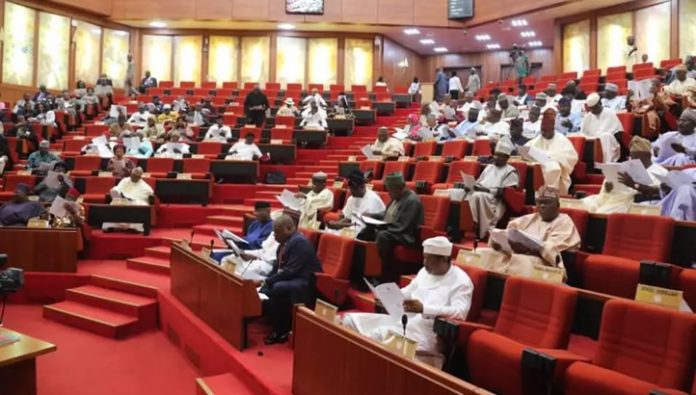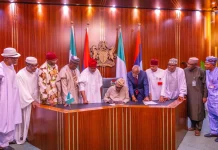In a controversial decision, Nigeria’s National Assembly presiding officers, including Senate President Godswill Akpabio, Speaker Abbas Tajudeen, Deputy Senate President Barau Jibrin, and Deputy Speaker Ben Kalu, have been granted a substantial N10 billion for rent and furnishings in the 2024 supplementary budget for the Federal Capital Territory (FCT). This budget, totaling N288 billion, was submitted by President Bola Tinubu in September and swiftly approved by lawmakers.
The item in question, labeled “Renting and Furnishing of Presiding Officers of the National Assembly,” has drawn criticism amid ongoing economic difficulties facing the country. Many citizens are grappling with rising costs, and the allocation for these officials has been seen as out of touch with the realities faced by ordinary Nigerians.
This latest funding is part of a broader trend of generous allowances for government officials, with FCT Minister Nyesom Wike previously allocating funds for a lavish residence for Vice President Kashim Shettima and for constructing housing for judges. Critics argue that such expenditures highlight a pattern of extravagant spending in the government, contrasting sharply with the austerity measures imposed on the general population.
The presiding officers represent both chambers of Nigeria’s bicameral legislature and are not the only officials to receive such financial benefits. The National Assembly’s budget has grown significantly in recent years, reaching N344 billion in the current fiscal year—the highest amount recorded. This prompts questions about why the legislature does not allocate its own resources to cover accommodation expenses for its leadership.
Historically, these officials resided in legislative quarters in Abuja, which were sold as part of a monetization policy under former President Olusegun Obasanjo. Although there have been plans for new housing projects in previous administrations, progress has stalled, leading to a continued reliance on rented accommodations.
The allocation for rent and furnishings raises several pertinent questions: What specific types of rent and furniture are included? Why is the FCT responsible for these expenses when the National Assembly has its own budget? And why allocate N10 billion for these costs when there are existing but unfinished housing projects for these officials?
Efforts to seek clarification through a Freedom of Information request to the FCT Ministry have gone unanswered, reflecting a pattern of opacity in Wike’s administration, where past requests for information have also been disregarded.
In comparison, the N10 billion earmarked for the four presiding officers significantly overshadows allocations for broader housing initiatives. For example, the federal government has proposed N11.5 billion for constructing 20,000 housing units as part of the Renewed Hope Agenda Housing Scheme, potentially benefiting many more citizens than the singular focus on the National Assembly leadership.
As public scrutiny regarding government expenditures intensifies, this latest allocation raises critical concerns about fiscal responsibility and the prioritization of resources in Nigeria.Share










